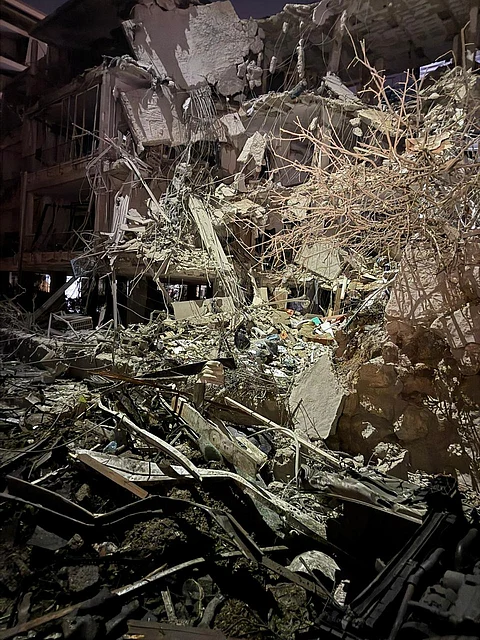

The first 24 hours of open warfare between Iran and Israel concluded Friday night, marking the most dangerous conflict in the Middle East since 1973. The war erupted following an Israeli assault on Iranian soil late Thursday night into Friday morning.
The initial Israeli strikes targeted a number of Iranian military and nuclear facilities and reportedly resulted in the assassination of several high-ranking military officials, including nuclear scientists. Following the attack, U.S. President Donald Trump dispelled any notion of American neutrality, revealing that Washington had prior knowledge of the strikes. Trump claimed he had given Tehran a 60-day ultimatum in April, stating, “Today (Thursday) was day 61.”
In the early stages of the attack, Iran’s air defense systems appeared to be largely unresponsive. According to both Israeli and Iranian sources, this was due to extensive sabotage operations. Israel claims Mossad agents operating inside Iran were instrumental in disabling Tehran’s defense infrastructure, although these reports have not been independently verified.
By Friday evening, Iran’s Supreme Leader Ayatollah Ali Khamenei addressed the nation in a televised speech, declaring that the Islamic Republic would “act decisively” and that there would be “no leniency” in its response. Shortly afterward, air defenses across Iran were observed to be fully operational again.
In retaliation, Iran launched three waves of ballistic missile strikes targeting Israeli territory in the early hours of Saturday. Explosions were reported in Tel Aviv and other areas across the country. Due to Israeli military censorship, the full extent of the damage remains unclear. However, Iran’s Islamic Revolutionary Guard Corps (IRGC) claimed responsibility for attacks on Israeli military-industrial facilities and missile production sites, though it has been confirmed the Israeli Defense Forces (IDF) command center in Kiryat, Tel Aviv, was hit.
By Early Saturday, Israel continued its airstrikes inside Iran with confirmed hits near Tehran’s Mehrabad Airport, as well as a residential building, indicating an assassination attempt, though it is unknown, who, if anybody was specifically targeted.
On Friday, President Trump urged Iran to return to negotiations after Tehran announced it was withdrawing from the scheduled sixth round of nuclear talks in Oman. Iranian Foreign Minister Abbas Araghchi rejected the appeal, calling calls for restraint “unjustified.” He stated that Iran would not re-engage in talks with Washington, asserting that the United States was equally responsible for the attacks as Israel.